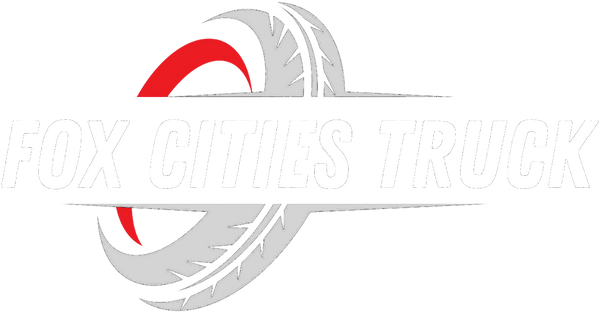
What’s That Noise? 7 Strange Truck Sounds and What They Really Mean
Share
Introduction
Ever been cruising in your truck, enjoying the drive, when suddenly—clunk! squeal! rattle!—you hear something that doesn’t sound right? Your truck might be trying to tell you something, and ignoring it could lead to costly repairs. That’s where truck noise diagnosis comes in. Understanding what those strange sounds mean can help you act early and avoid a breakdown later.
Think of your truck like a friend trying to get your attention with noises instead of words. Let's dive into the world of truck noises and figure out what they’re really saying.
The Mystery of Truck Noises
Strange truck sounds can be puzzling, but they’re rarely random. They usually signal that something's not working quite right. Just like a cough can tell a doctor what’s wrong with a patient, a weird noise can tell a mechanic what’s wrong with your truck. Learning the basics of truck noise diagnosis can save you money, time, and stress.
The High-Pitched Squeal – Worn Brake Pads
A sharp, squeaky sound when you hit the brakes? That’s your brake pads crying for help. Most modern pads come with wear indicators that squeal when it’s time for a replacement.
Key Tip:
Don’t wait! Worn brake pads can damage your rotors and compromise your stopping power.
The Grinding Sound – Brake or Transmission Issues
Grinding is one of those sounds that makes you wince. If it happens when braking, your brake pads might be completely worn down. If it occurs during gear shifts, your transmission could be in trouble.
Sound Familiar?
It’s like metal chewing metal—not something you want to ignore.
The Clunking Noise – Loose Suspension Parts
Clunking when driving over bumps? You might have loose or broken suspension components like ball joints or sway bar links.
Why It Matters:
Faulty suspension affects handling and safety. It can also lead to uneven tire wear.
The Hissing Sound – Vacuum Leak or Overheating
Hissing can mean a few things: either a vacuum leak (affecting performance) or escaping steam from an overheated radiator.
Quick Check:
If the hood is hot and you see steam, it’s likely a coolant issue. Turn off the engine and let it cool down before checking further.
The Rattling Underneath – Loose Exhaust or Heat Shield
A rattling sound under the truck could be something as simple as a loose heat shield or as complex as a failing catalytic converter.
Fix or Ignore?
Even small issues can lead to larger ones. A loose heat shield might fall off, while a bad converter can affect emissions and performance.
The Knocking Engine – Detonation or Low Oil
An engine knock can be alarming. It might be due to pre-ignition (fuel combusting too early) or simply low oil.
Oil Check Time:
Always ensure oil levels are adequate. Driving with low oil can destroy your engine.
The Clicking Sound – CV Joint or Valve Trouble
Clicking that speeds up with your wheels? Could be a CV joint. Clicking from the engine bay? Maybe a valve issue.
Listen Closely:
Clicking from the wheels during turns usually means the CV joint is failing. Catch it early and save big.
Why You Shouldn’t Ignore These Sounds
Ignoring strange truck sounds is like ignoring your smoke detector. It won’t fix itself, and things can escalate quickly. A minor rattle today could mean a major repair tomorrow.
When to See a Mechanic
If you’re unsure about a sound or it gets worse, it’s best to have a mechanic take a look. Describe the noise, when it happens, and what it sounds like. The more details you give, the faster the diagnosis.
Tips for Truck Noise Diagnosis
- Listen carefully: Identify when and where the sound occurs.
- Record it: A quick phone recording can help your mechanic hear it too.
- Note the pattern: Is it constant? Only at high speeds? Only when turning?
Preventative Maintenance to Avoid Strange Noises

Routine checks go a long way. Keep your fluids topped off, brakes inspected, and suspension components tight.
Maintenance = Peace of Mind.
Treat your truck well, and it’ll return the favor.
Noise Vs. Performance – Are They Linked?
Yes! Performance drops often come with sounds. A rough idle, slower acceleration, or poor fuel economy might all be paired with odd noises. Your truck’s trying to tell you something—listen up!
How to Communicate Truck Sounds to Your Mechanic
Describe sounds using simple terms like:
- “Squealing when braking”
- “Knocking when accelerating”
- “Clicking when turning right”
Add context: When does it happen? How often? This helps with accurate truck noise diagnosis.
Conclusion: Listen Before It’s Too Late
Truck noises are like warning lights you can hear. Learn to recognize them and you’ll save yourself from unexpected breakdowns, big bills, and stress. Trust your ears—your truck is talking.
FAQs
1. What does a high-pitched squealing sound mean in a truck?
It usually indicates worn brake pads. Replace them promptly to avoid rotor damage.
2. Can a clicking noise mean my CV joint is bad?
Yes, especially if it happens during turns. Get it checked before it fails completely.
3. Should I be worried about engine knocking?
Definitely. It could be low oil or improper fuel combustion. Check your oil and see a mechanic.
4. What causes a rattling noise underneath my truck?
Common causes include a loose heat shield, exhaust parts, or a bad catalytic converter.
5. How can I best describe a truck noise to my mechanic?
Use simple words, note when it happens, and consider recording it on your phone for clarity.
